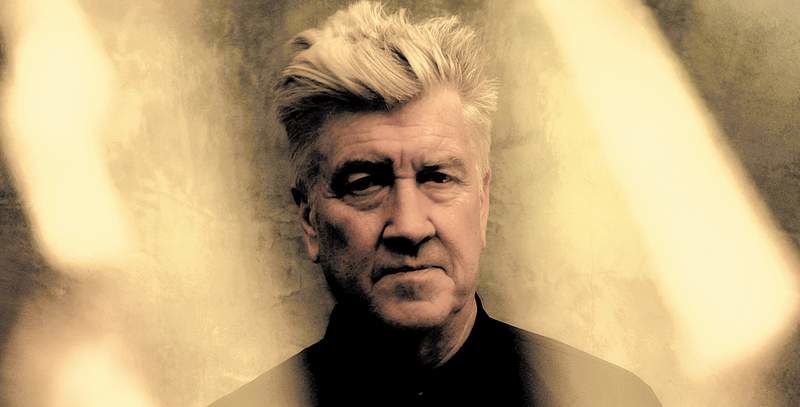To Lynch’s long, weird résumé, add a rock recording
Published 4:00 am Tuesday, November 8, 2011

- Filmmaker David Lynch’s latest project, “Crazy Clown Time,” is an album which has evolved out of home-studio jam sessions and experiments.
In the 1980s and ’90s, an artist working on the weirdo fringe of the avant-garde became, almost unbelievably, a household name.
In “Blue Velvet” and “Twin Peaks,” David Lynch folded surrealism’s psychological potency into frightening but glossy mystery tales, inspiring countless imitators and making TV safe for the daring long-form dramas that followed. Then, while highbrow aesthetes championed his every film and mainstream audiences grew wary, Lynch continued to follow his muse down dark, claustrophobic corridors.
Casual observers saw this strange trajectory only in movie theaters, where the “Wizard of Oz” references in 1990’s “Wild at Heart” and the baffling transformations in 1997’s “Lost Highway” led to 2006’s thoroughly alienating “Inland Empire.” But all along, Lynch has worked in mediums other than film. His latest project, an album titled “Crazy Clown Time” (coming out today), should really be no surprise, at least in Lynchville.
The filmmaker has made music for decades, at least since collaborating on the masterfully atmospheric “Twin Peaks” soundtrack. But most of his work, which evolves out of home-studio jam sessions and sporadic experiments, has been released with little fanfare — perhaps because it is extremely peculiar, unlikely to appeal to the average shopper. If this album and its preceding single, issued last year, are billed as a debut, that’s largely a record-company decision.
Speaking on the phone from Paris, the Los Angeles-based Lynch says his label, the U.K.-based Sunday Best Recordings, is “behind it, making it much bigger than a self-released thing kind of under the radar.”
A roundup of other non-movie projects that the filmmaker has undertaken more or less “under the radar”: gallery exhibits of painting and sculpture, which sometimes involve such unexpected elements as live ants; the syndicated newspaper comic strip “The Angriest Dog in the World,” in which the drawings were the same from week to week but the dialogue changed; a gilded, Lynch-designed nightclub, built six stories beneath Paris; a foundation promoting world peace through transcendental meditation; and a signature blend of organic coffee.
Oh, and yes: Of late, he has lent his voice to a cartoon character on the “Family Guy” spinoff “The Cleveland Show.”
Then there’s the Internet. For a time, DavidLynch.com was a portal where paying subscribers found bizarre short films, puzzle-like interfaces and direct online conversations with the artist. That service was recently retired.
“I guess I’ve learned lessons,” Lynch admitted. “The Internet is like television: It’s a very hungry medium, and it can really take a lot of your time to keep it current.”
He’s still on Twitter, though, even if his missives are now mostly promotional. Gone are 2009’s koan-like “thoughts of the day,” which ranged from tidy insights (“Works of art consist of objectifying subjectivity”) to joyous non sequiturs (“Ancient pond. Frog jumps in. Splash!”).
That mix of philosophy and goofiness appears on “Strange and Unproductive Thinking,” a song on “Crazy Clown Time” in which a rambling, New Agey soliloquy eventually gives way to a meditation on the relationship between dental hygiene and emotional health.
On that track and most of the others, Lynch’s vocals are heavily distorted. Whether he’s speaking through electronic filters on “Thinking” or singing like an unhinged Elmer Fudd on “Speed Roadster,” Lynch never uses his regular voice. Come to think of it, he didn’t on “Twin Peaks,” either: The FBI agent he played, who was nearly deaf, shouted his dialogue.
Asked if he thinks his natural voice isn’t interesting, Lynch abruptly shouts “WHAT?!” into the receiver and goes silent. After letting his joke sink in, he explained that “a dry (unaltered) voice is such a disaster. Just like all the instruments these days, manipulation’s the name of the game.”
In both his music and his movies, Lynch’s attention to sound effects, even those that listeners and viewers don’t consciously notice, is painstaking. His world may be full of electrical buzz and fluorescent-bulb hum, but the noise is rendered exactly as he wants it. He has gone so far as to send personal letters to theater projectionists — “please raise volume 3 (decibels louder) than normal” — and record introductions on DVDs imploring fans not to watch them on computers. “Crazy Clown Time” may be available on iTunes, but Lynch desperately hopes that listeners will encounter the album via CD or vinyl.
“It’s a real sadness,” he says of MP3s’ degraded sound quality. “Some new technologies are bringing so much quality, like high-def (video), but the end result is, it’s played more and more on computers: small speakers, a pathetic little squeak — zero power, zero thrill. A poisonous insanity is what’s going on!”
One wonders if in-flux technologies play a part in Lynch’s absence from filmmaking since “Inland Empire.” Though some journalists think he has no desire to make another feature, Lynch reports that he is “trying to catch ideas” for a new project.
In the meantime, he’s shooting a documentary about the life of Maharishi Mahesh Yogi, whose meditation practices Lynch has followed since the ’70s.
And we have a deeply twisted rock-and-roll record to consider. While some may doubt its commercial prospects, Lynch is almost blase when asked how he expects the public to respond.
“Judging from what’s gone before,” he said — then pauses — “there’ll be a mixed reaction.”






